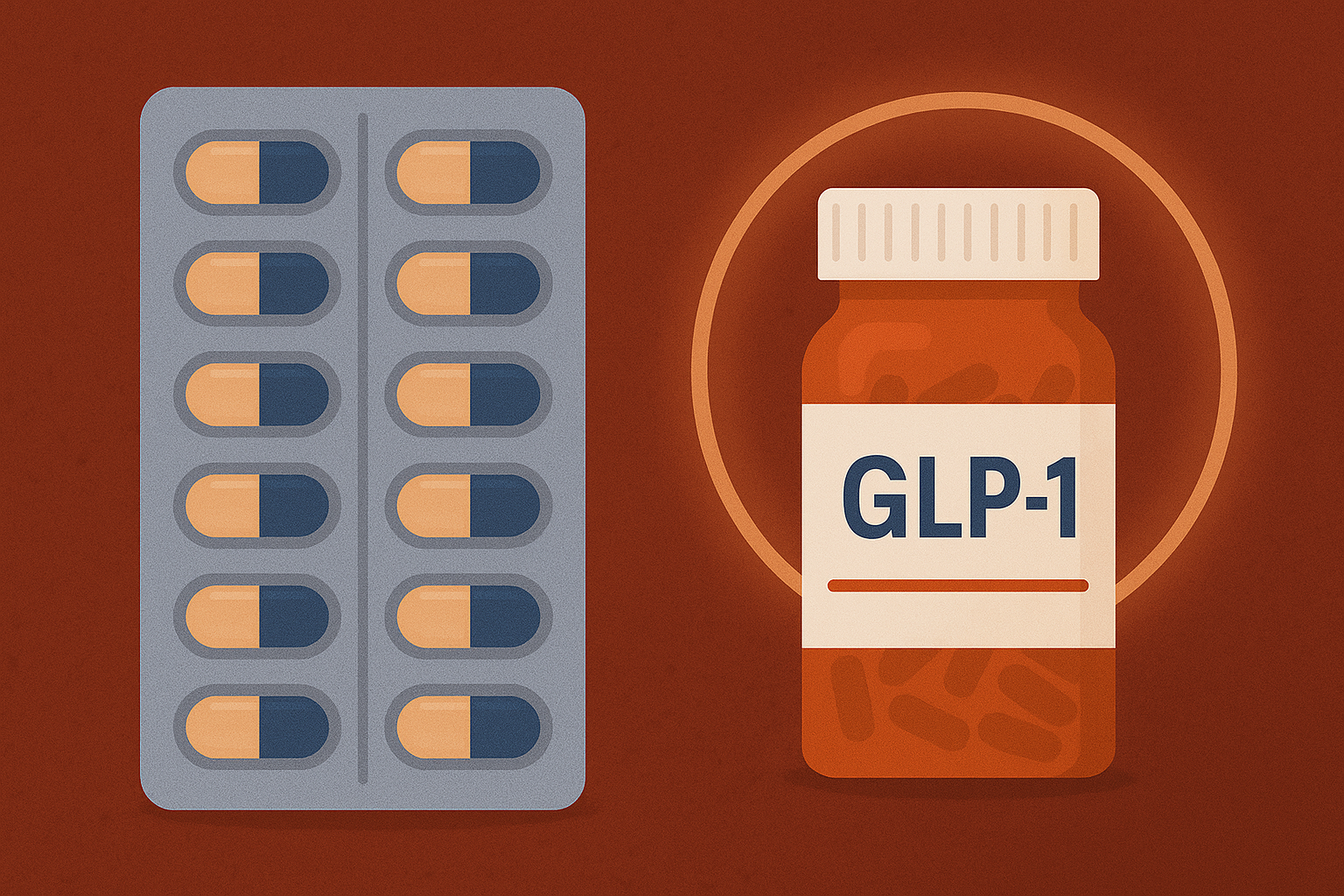For years, people taking GLP-1 receptor agonists (GLP-1 RAs)—such as semaglutide (Ozempic, Wegovy) and liraglutide (Victoza, Saxenda)—have been warned about a potential risk of thyroid cancer. These concerns originated from animal studies where rodents developed thyroid tumors when given high doses of these medications.
However, a new large-scale study, published in Thyroid (the official journal of the American Thyroid Association), has delivered reassuring news: There is no evidence that GLP-1 RAs increase thyroid cancer risk in humans.
What Are GLP-1 Receptor Agonists?
GLP-1 RAs are a class of medications primarily used to treat type 2 diabetes and obesity. They work by:
✅ Stimulating insulin release (helping lower blood sugar)
✅ Slowing stomach emptying (promoting fullness and reducing appetite)
✅ Reducing glucagon secretion (which decreases liver glucose production)
Popular GLP-1 RAs include:
- Semaglutide (Ozempic, Wegovy)
- Liraglutide (Victoza, Saxenda)
- Dulaglutide (Trulicity)
Why Were There Concerns About Thyroid Cancer?
In early animal studies, rodents exposed to GLP-1 RAs showed an increased risk of thyroid C-cell tumors. As a result, the FDA mandated warning labels on these medications, cautioning about potential thyroid cancer risks—especially for those with a family history of medullary thyroid carcinoma (MTC).
What Does the New Study Say?
The multinational study, led by Professor Anton Pottegård (University of Southern Denmark), analyzed data from six countries, comparing:
- 92,497 GLP-1 RA users
- 2,484,408 users of DPP-4 inhibitors (another diabetes drug)
Key Findings:
🔹 No increased thyroid cancer risk in GLP-1 RA users compared to DPP-4 inhibitors.
🔹 Results were consistent across different GLP-1 medications.
🔹 Follow-up periods ranged from 1.8 to 3 years, providing strong short-term safety data.
The researchers concluded:
“We found no evidence that GLP-1 RA use is associated with an increased risk of thyroid cancer, providing some reassurance to patients and clinicians about the short-term safety of these drugs.”
What Does This Mean for Patients?
This study offers much-needed reassurance for people taking semaglutide and other GLP-1 RAs. While long-term studies are still needed, current evidence suggests these medications do not significantly increase thyroid cancer risk in humans.
However, if you have a personal or family history of medullary thyroid cancer (MTC), it’s still wise to discuss risks with your doctor before starting these medications.
Final Thoughts
The fear of thyroid cancer has been a lingering concern for GLP-1 RA users, but this large, real-world study provides strong evidence against that risk. While animal studies don’t always translate to humans, this research supports the safety of semaglutide and similar drugs for most patients.
If you’re taking Ozempic, Wegovy, or another GLP-1 medication, this study should offer peace of mind—but always consult your healthcare provider with any concerns.
References:
- Baxter, S. M., et al. (2025). “Glucagon-Like Peptide 1 Receptor Agonists and Risk of Thyroid Cancer: An International Multisite Cohort Study.” Thyroid. DOI: 10.1089/thy.2024.0387
- Original source: Mary Ann Liebert, Inc./Genetic Engineering News



